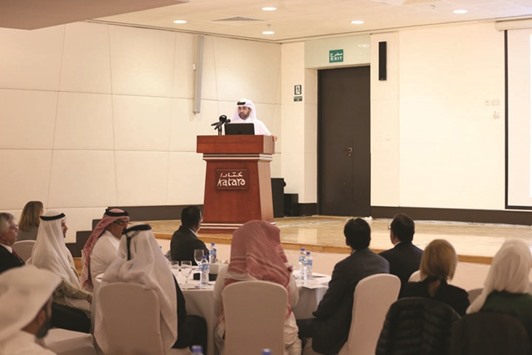The eighth Strategic Leadership Forum organised at Katara-the Cultural Village has concluded with the launch of a new initiative that will contribute to planning and preparing for cultural projects in future.
Dubbed the ‘Katara cultural index in Qatar’, the initiative lays “special focus on enhancing the role of the cultural element in community development”, according to Katara general manager Dr Khalid bin Ibrahim al-Sulaiti.
The forum attracted a lineup of executives and leaders from Qatar and the GCC region’s public and private sectors, along with Arab and international experts interested in developing strategies for governments and private sectors.
In a statement, Katara said the initiative aims to trace and study statistics relevant to heritage, cultural activities, events and cultural products and projects in Qatar in co-ordination with Unesco’s framework of
cultural statistics.
“Recognising the importance of cultural and community values in Qatar through a well-planned mechanism to reach results, recommendations and initiatives would be vital in Katara’s bid to boost cultural and community values in society,” Dr al-Sulaiti said, noting that the index entails figures and statistics and sheds light on cultural projects and events launched in Qatar.
“This index will surely help us in planning and preparing for upcoming cultural projects, and in recognising the trends and tendencies of the intellectual elite, writers, authors and literary personalities, in order to capitalise on their talent, creative works and knowledge in the fields of culture and science,” Dr al-Sulaiti continued. “Cultural indices are of great importance as they contribute to building communities aware of their roles in achieving comprehensive cultural development, in addition to the economic and social impact of such indices – all leading to placing education as the primary source of cultural influence as it’s linked to the variables of
cultural policies.”
The forum, he observed, involved debates on identifying and analysing best practices, transferring knowledge and circulating and exchanging successful business expertise. The participation of experts from the US and UK, as well as executives from the GCC countries, helped circulate winning business models in the fields of education, health, culture and public and private sectors.

Dr Khalid bin Ibrahim al-Sulaiti addressing the Strategic Leadership Forum at Katara-the Cultural Village.
